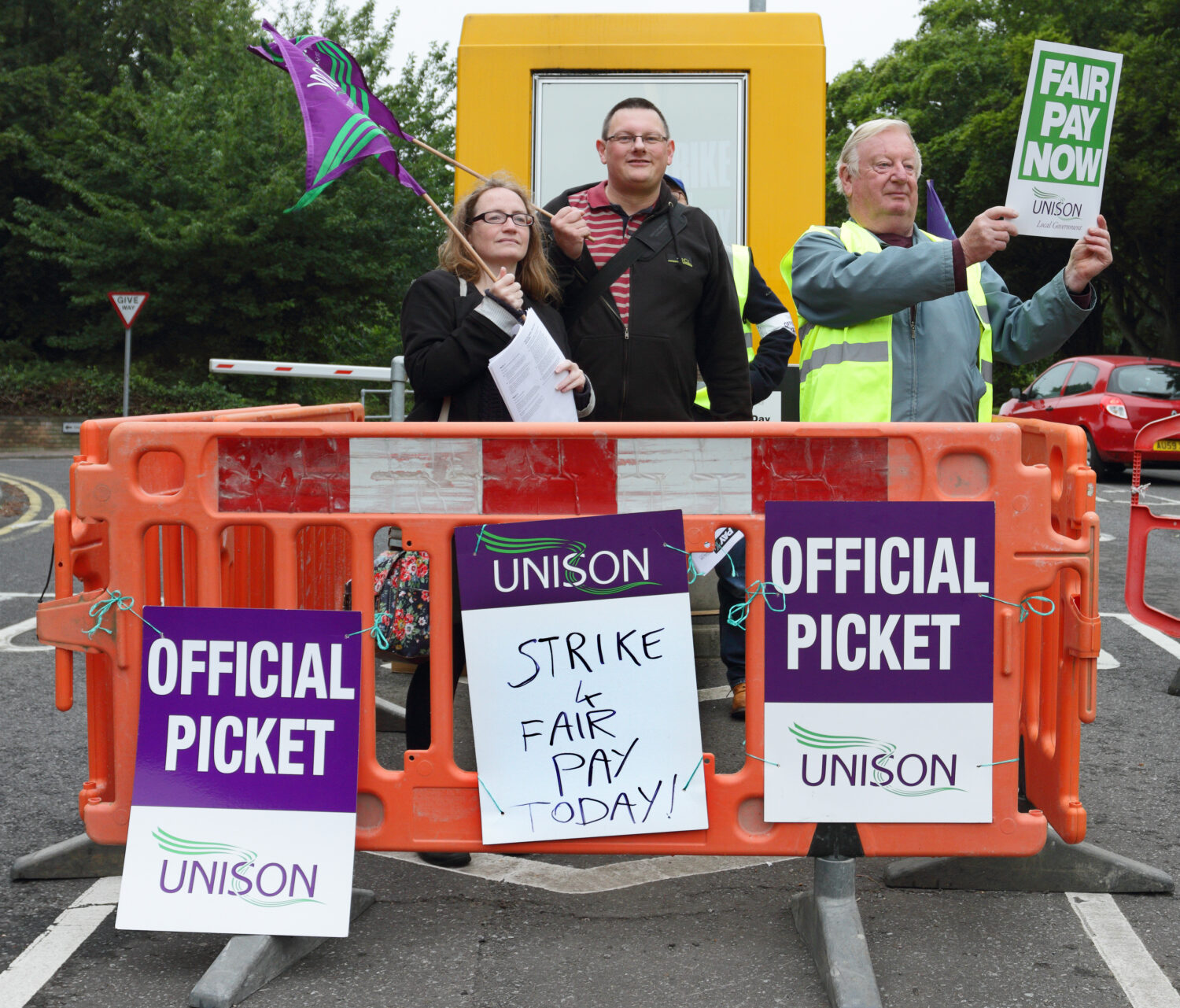Going Further
Labour should build on the success of the minimum wage, writes Christina McAnea
One of the last Labour government’s most enduring legacies, the minimum wage, turns 25 in 2024. It is right that we celebrate a policy that has lifted living standards for millions of the lowest-paid workers and guarantees them a wage uplift every single year. It is also right that we reflect on what the political and industrial wings of the Labour movement can achieve next when we push together to deliver for the low-paid.
Rodney Bickerstaffe, the general secretary of the National Union of Public Employees (NUPE) and later of UNISON, led the campaign for a legally enforceable minimum rate of pay for the best part of 25 years. In 1998, the Minimum Wage Act was passed by the newly elected Labour government, with the first rate announced by the Low Pay Commission the following year. What started as Rodney’s discussions with the few people who would listen snowballed to become one of the most successful policies in British politics. The Tory opposition and some business leaders threatened that the minimum wage would lead to unemployment and fewer job opportunities. But they were proved wrong, and the importance of the minimum wage gradually became clear. Rebadged by the Conservative government as the National Living Wage in 2015, the minimum wage is now on track to reach
the government target of two-thirds of median hourly pay in 2024.
As it heads towards that target, the Labour movement is already working on how to build on its success and take on more of the challenges of low pay. The idea of a minimum wage – and the gradual recognition that the UK needed one – came out of the experience of people working in public services in the 1970s. Sky-high inflation and failing government pay policy meant that many workers, particularly women and those working part-time, were facing sustained hardship. To build on the success of the minimum wage, we must listen to the priorities of the low-paid once again.
In the context of a devastating cost of living crisis, Labour’s pledge to give a new remit to the Low Pay Commission, requiring it to take into account the cost of living when setting the rate in future years, is welcome news. However, the experience of low-paid UNISON members and wider data shows we need to address the problem of insufficient work hours too. ONS data shows that whilst the minimum wage has made great strides in tackling low hourly pay, low weekly pay remains an issue for nearly one in four workers. There are many reasons why lots of people want to work less than a full week and/or have the flexibility to pick up hours as and when they want them. But for far too many, it is not a matter of choice. UNISON’s survey of social care workers revealed that:
- 77 per cent of staff would take more hours if they were available.
- 73 per cent of staff would prefer a typical full-time working week of approximately 37 hours if it were available.
- Contracted hours varied from week to week for three-quarters of staff.
In comments on their working patterns, the dominant issue was the stress and worry caused by inadequate hours, leaving workers unable to pay bills on time. Many respondents mentioned the high costs of rent and energy bills, leaving them with very little remaining income to spend on food for them and their families.
They want flexibility, like most workers do, and they want a decent work life balance. But they want it within the bounds of the contractual security that many better-paid workers don’t have to fight for.
Labour’s commitment to scrap zero-hours contracts and give workers the right to a contract for the hours they do will help significantly. But it is the party’s plans to introduce sectoral collective bargaining and fair pay agreements, with the first in adult social care, that could have the greatest impact on the low paid. This should enable trade unions to negotiate with employers to give workers secure weekly hours, flexible working patterns, sick pay and bargaining power, as well as using the minimum wage as a benchmark to be improved on.
This represents a shift in approach to looking at the whole picture of low pay and not just pay rates. It is a theme that runs through a new UNISON publication, Delivering Greater Security for the Low Paid. As its contributors point out, wider measures, such as fair pay agreements, living hours, better sick pay provision and an improved benefit system, are needed to make the minimum wage even more effective in the period ahead.
Image credit: Roger Blackwell via Flickr

